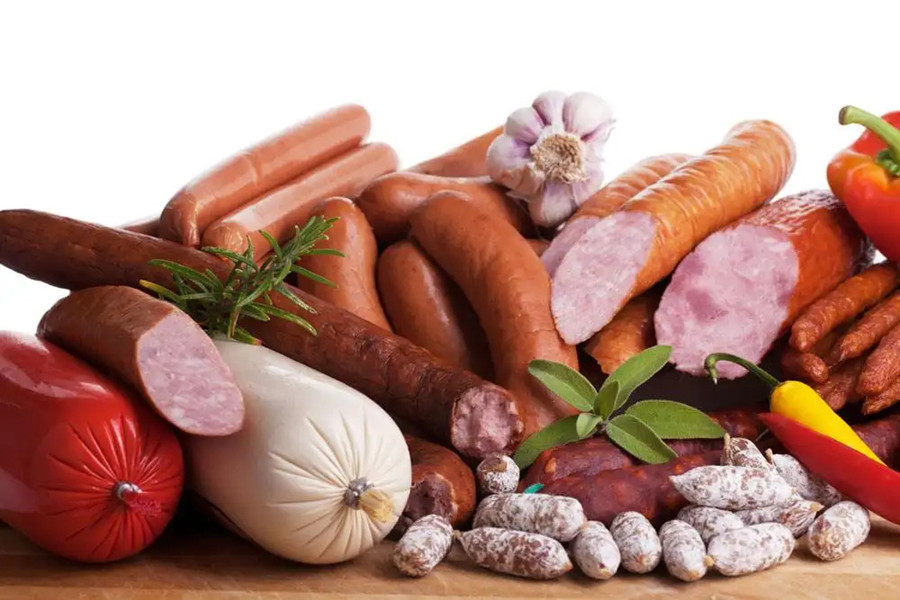Food additives are commonly used to improve water retention during the marinating or processing of meat, which is the most effective method. The rational use of additives to improve water retention under the premise of ensuring food quality and safety has always been an important issue in meat processing.
The commonly used water retention and binders for meat products are salts, phosphate, soybean protein, carrageenan, starch, sodium caseinate, etc.
Salt:
A certain concentration of salt can enhance the water retention of meat. The test shows that when the salt content is between 4.6% and 5.8%, the water retention is the strongest. When it is around 3%, the decrease in the content will lead to a decrease in water retention. In order to maintain the water retention of meat products, water retention agents such as polyphosphates must be added.

Polyphosphate:
It is a highly hydrophilic water-retaining agent, which can stabilize the moisture contained in food well. The quality of water holding capacity is related to factors such as its type, amount of addition, pH value of meat, and ionic strength. For meat products, the best water-holding capacity is pyrophosphate, followed by tripolyphosphate. With the increase in chain length, the water-holding capacity of polyphosphate gradually weakened, and the water-holding capacity of orthophosphate was poor.
Phosphate:
It is the most widely used and most effective water humectant in meat processing at present, and it has an obvious synergistic effect with table salt. Commonly used phosphates are sodium tripolyphosphate, sodium pyrophosphate, sodium hexametaphosphate, disodium dihydrogen pyrophosphate, potassium pyrophosphate, potassium tripolyphosphate, and complex phosphate.
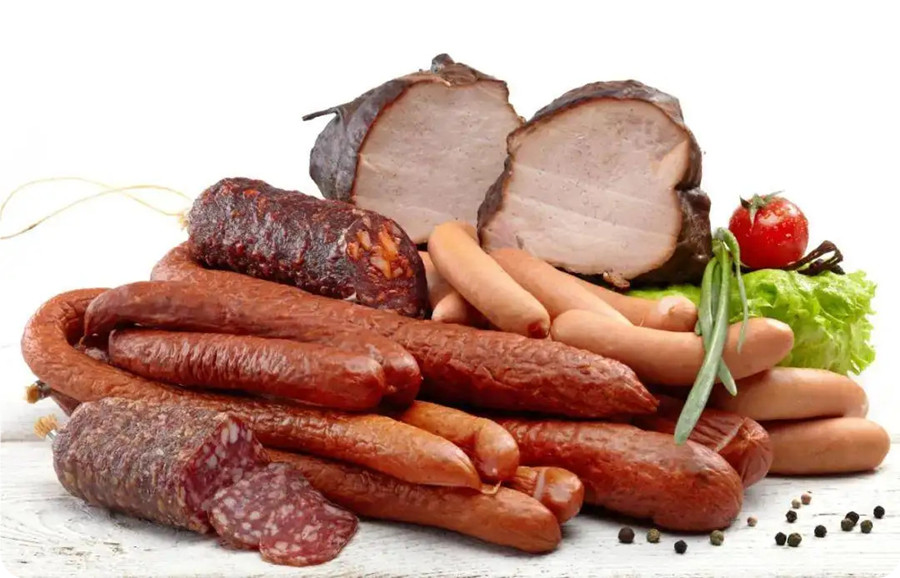
In practical applications, the appropriate type and amount of phosphate should be selected according to the type of meat products, texture requirements, production process, raw materials, etc., combined with the characteristics of various phosphates. Make it maximize the water retention of the meat and minimize the color of the meat product.
Meat products with added pyrophosphate restore and enhance the natural water-holding capacity of muscle protein. The same effect can be achieved because polyphosphates are rapidly converted into pyrophosphates by muscle enzymes. Although pyrophosphate has the greatest water retention effect, it has poor solubility and therefore cannot be used alone in most cases. Instead, it is often used in combination with polyphosphates or potassium phosphates with better solubility. In addition, in order to exert the synergistic effect between various phosphates and other additives, various compound meat product improvers are often used.
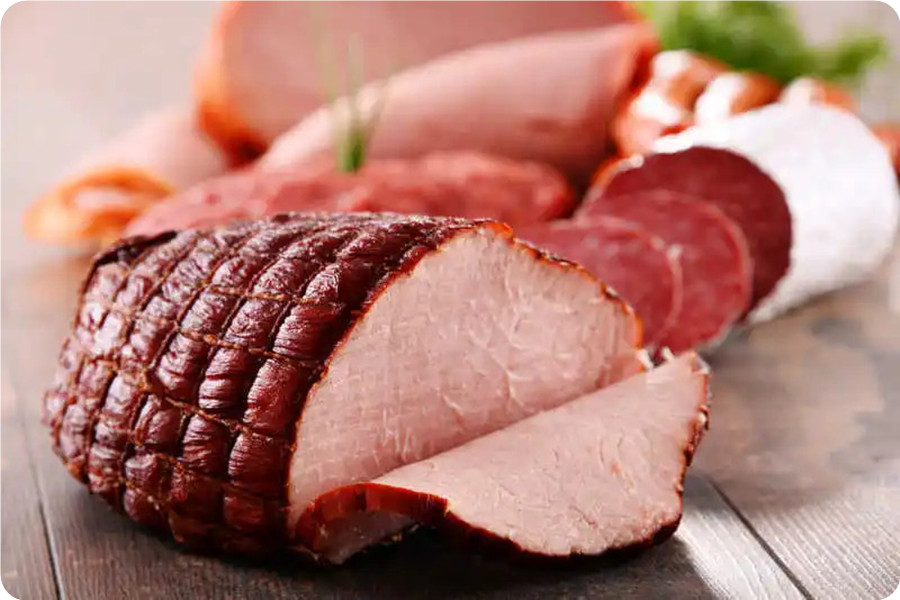
Soy Protein:
Adding exogenous protein to meat during curing or processing improves water retention, most commonly soy protein. Soy protein isolate has good dispersibility and solubility and is most suitable for preparing protein brine. The addition amount should be controlled within 10%, preferably around 5%.
Carrageenan:
It is used as a gelling agent in meat processing due to its strong viscosity, good solubility, coagulation, and other physical and chemical properties. After being added to meat products, once heated, it will combine with water to form a hard colloid, forming a stable network structure. It can effectively enhance the water retention of meat, and improve elasticity and slicing performance, thereby improving product quality and reducing costs. Carrageenan should avoid swelling when dissolved, and is generally used to increase the viscosity of meat injection brine. That is after the phosphate and salt are dissolved, carrageenan is added to control. At the same time, in order to prevent the carrageenan from sinking, it should be continuously stirred to disperse it.
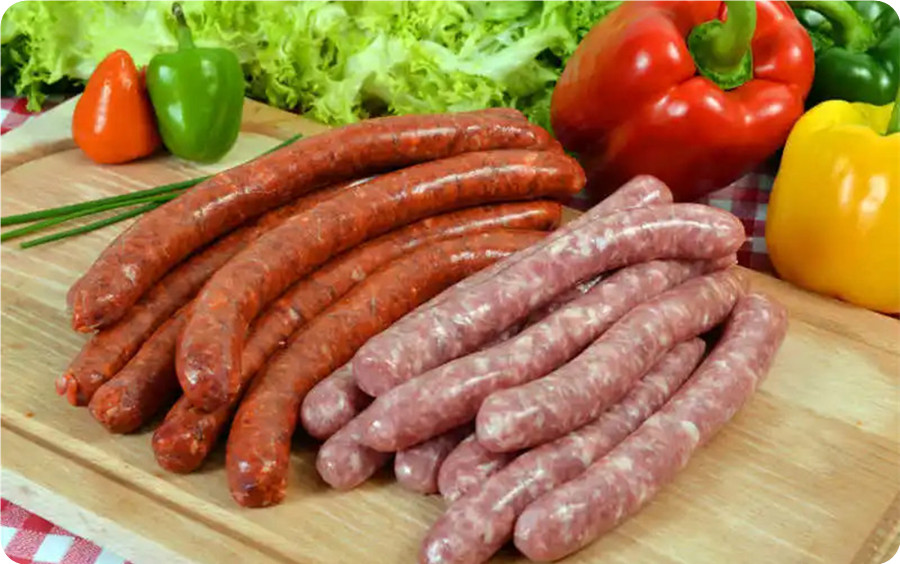
Starch (modified starch):
It is the most commonly used thickener and coagulant in the processing of meat products and has a good effect on the water retention of meat products. This is due to its gelatinization when heated and tightly bound to the water molecules in the denatured network of muscle proteins. After gelatinization, starch becomes soft and elastic, which has the dual effect of adhesion and water retention. Its addition amount should be controlled by 5%, too much starch will reduce the quality of meat products.
Sodium Caseinate:
Also known as sodium caseinate, it has strong emulsifying and thickening effects. Used to enhance fat and water retention, prevent syneresis, and improve the texture and taste of meat products. The addition amount is generally 1.5%-2%.
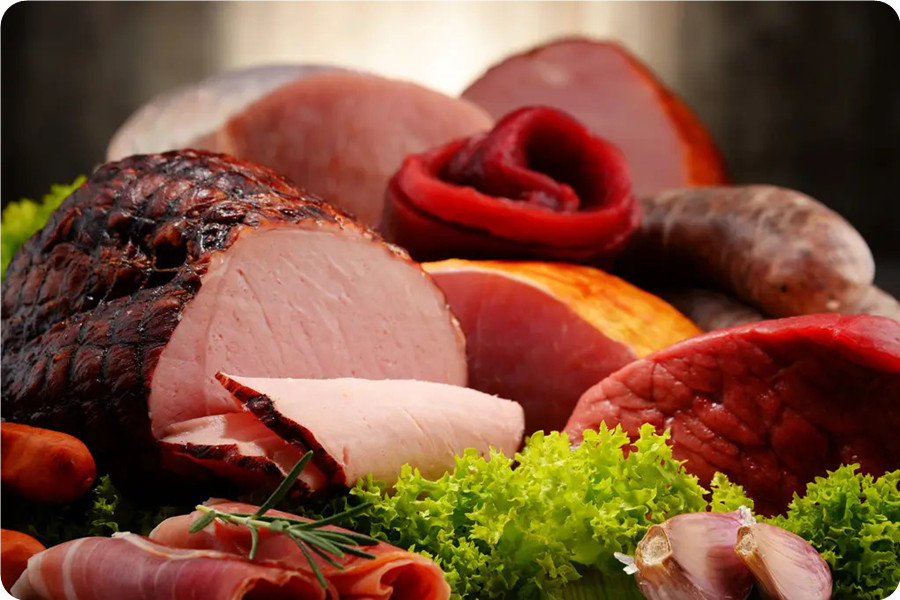
A large number of production practices show that the above additives are better mixed than used alone. When using, the appropriate water retention, binder type, and additional amount should be selected according to the types of meat products, texture requirements, raw materials, production costs, and other factors combined with the characteristics of various additives. The rational compound use of salt, compound phosphate, and various thickening and gelling agents is an effective means to improve the water retention of meat products.

